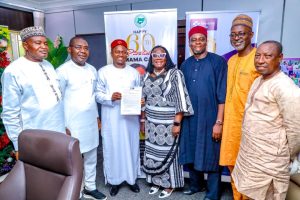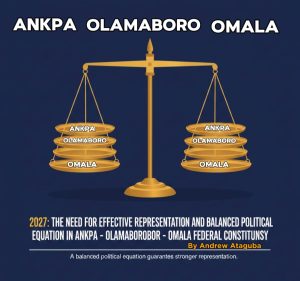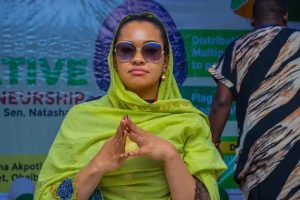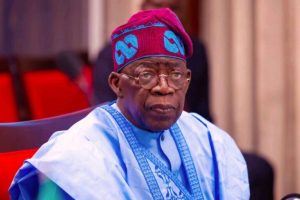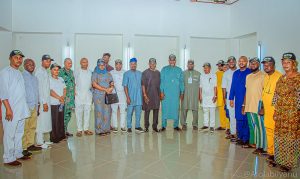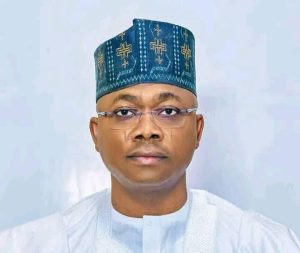Navigating The Fine Line of Genuine Public Service vs Political Philanthropy in Nigeria
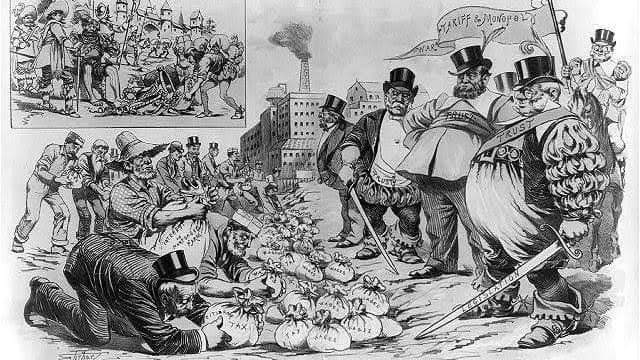
By Abdul Mohammed Lawal.
Nigeria’s political landscape is a multifaceted terrain where various factors converge to shape public perception and voter behavior. Among these, the dichotomy between being an open-minded, people-oriented politician and merely playing the philanthropist card as a means to an end is particularly salient. This dynamic poses significant implications for governance, trust, and the overall democratic process in the country. The enduring use of emotional ploys to sell individual interests and ideologies from precolonial Nigeria to the present day continues to burden the political landscape.
A people-oriented politician, whether established or a newcomer, prioritizes the needs and aspirations of the populace. In today’s idea-driven atmosphere, which is steadily deviating from the established status quo, such individuals engage with their grassroots on personal grounds, listen to their concerns, and represent them from their sphere of influence outside public offices. This approach enables society to view them as their own, influencing their work towards policies that reflect the collective will when they are finally in public offices. In the contemporary Kogi setting, these individuals automatically turn into leaders and are seen as beacons of hope. However, newcomer politicians often exploit this as a perceived weakness rather than embracing it as an ideal.
Conversely, the use of philanthropy as a political strategy is prevalent in Nigeria. In Kogi State, politicians often engage in acts of generosity, such as distributing food, money, or other resources, particularly in the buildup to an election period to make themselves more people-frinedly. While these gestures may provide immediate relief to recipients, they are frequently perceived as transactional, aimed at securing votes rather than addressing underlying systemic issues. In recent times, this strategy is employed within two years or less, depending on the office of interest.
In the buildup to the 2023 Kogi State Gubernatorial election, the practice of using philanthropy to curry favor with voters was more pronounced than ever, raising real-time concerns that many Kogites overlooked. A popular candidate in this election, a high-ranking member of the All Progressives Congress (APC), consulted with a progressive figure in 2020, expressing his desire to become the next executive governor of Kogi State. The progressive figure initially laughed at the candidate’s unpopularity but agreed to strategize for him.
The first approach was to project this not-so-popular political figure as a philanthropist, using philanthropic activities to create an image of benevolence and concern for the public good. Within a short period, their first initiative involved installing solar-powered streetlights in selected locations across Kogi East Senatorial District, sparking curiosity about the benefactor. This strategy worked magic in 2021, as the aggrieved target population sought a new tool for their grievances. The subsequent flooding in several local government areas in 2022 provided an opportunity to extend this skewed benevolence to western and central Kogi State.
While such initiatives may win hearts in the short term, they do little to address the systemic challenges facing Kogi State. Although the 2023 experience was perfectly executed for the initiator, who played the victim card to a system he benefited from more than the average electorate, it undermined the principles of democracy by reducing political engagements to a quid pro quo arrangement. The constituents, swayed by political propaganda, focused solely on seeing their new savior become the next governor, ignoring valid questions about his prior contributions.
The distinction between genuine, people-oriented politics and strategic philanthropy has profound implications for governance and public trust in Nigeria. When politicians focus on short-term, superficial acts of charity, they risk eroding the public’s faith in the political system and it actually backfires on them if they eventually win elections into public offices. Citizens become disillusioned with leaders who fail to deliver on their promises and resort to temporary fixes instead of addressing structural problems. This can foster apathy among the electorate, as citizens will view elections as opportunities for immediate gain rather than a means of influencing long-term policy outcomes.
The truth is, it takes billions of Naira to run for governorship elections in any state in Nigeria. If these politicians genuinely cared about the electorate, what has been their scope of representation for the average Kogites outside the public office they seek? As a progressive Kogite, I urge you to reflect and ask yourself the real questions. I have yet to find three young Kogites empowered by the major opposition candidate in the 2023 Kogi State Gubernatorial election before he spent billions on his campaign.
Navigating the fine line between being a people-oriented politician and playing the philanthropist card as a means to an end is a critical challenge in Nigeria’s political arena. Ultimately, the path to sustainable development and democratic consolidation in Nigeria lies in fostering a political culture that values genuine public service over short-term gain. By prioritizing the welfare of their constituents and engaging in meaningful policy-making, politicians can pave the way for a brighter, more equitable future for all Nigerians.
With 2027 approaching, politicians are already strategizing and forming alliances to project themselves favorably. The average Kogite remains engaged in criticizing disliked politicians and debating what should be rather than charting an indigenous way forward. This is our reality, but in all you do:
“SAY NO TO PHILANTHROPY AS A POLITICAL STRATEGY.”

